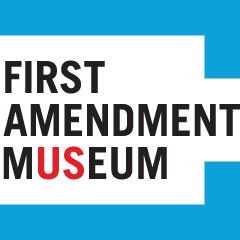With the rise of a formal music industry with things like Tin-Pan Alley, Broadway, and Hollywood, early 20th century protest songs began to be written by professional songwriters and lyricists who used their own melodies, though most continued to be penned by activists and folk artists.
The transition from sheet-music to wax-cylinders, phonographs, records, and radio enabled greater complexity in protest songs as they could now be recorded in a studio, performed by professional artists, and distributed for people to play rather than perform.
10. “I Didn’t Raise My Boy to Be a Soldier” by Alfred Bryan and Al Piantadosi (1914)
The powerful lyrics found within “I Didn’t Raise My Boy to Be a Soldier” were a heartfelt reaction to the slaughter of World War I. The song struck a chord with the American public, many of whom wished to stay out of the war, and sold 650,000 copies within three months of its release. Not all were fans of the song, however. Theodore Roosevelt remarked that “foolish people who applaud a song entitled ‘I Didn’t Raise My Boy To Be A Soldier’ are just the people who would also in their hearts applaud a song entitled ‘I Didn’t Raise my Girl To Be A Mother.'”
11. “Don’t Bite the Hand That’s Feeding You” by Jimmie Morgan and Thomas Hoier (1915)
At the outbreak of World War I, many descendants of, and actual immigrants from, the warring countries advocated for the United States to assist their respective nations. Some even criticized the United States for its neutrality. In response, Thomas Hoier wrote the nativist ballad “Don’t Bite the Hand That’s Feeding You” which calls upon immigrants to “go back to your home o’er the sea” if you “don’t like your Uncle Sammie.” During WWII, the song was used to silence criticism of the war effort.
12. “Cotton Mill Colic” by David McCarn (1926)
Loud, hot, cramped, damp, and dangerous, cotton mills and textile plants were America’s first factories. Folk musician David McCarn penned the song “Cotton Mill Colic” in 1926. The song describes the wretched conditions mill workers had found themselves in for the last century. It was sung by cotton mill strikers in South Carolina during the late 1920s and was recorded as early as 1930.
13. “Ol’ Man River” by Jerome Kern, Oscar Hammerstein II, and Paul Robeson (1927)
“Ol’ Man River” is unique because it was actually written for a Broadway musical entitled Show Boat. The lyrics contrast the struggles and hardships of black Americans with the endless and uncaring flow of the Mississippi River. It is sung from the point of view of a black stevedore on the eponymous showboat. The song became a standard for singer and civil rights activist Paul Robeson who often altered the lyrics when performing it throughout his career. The lyrics, “I’m tired of livin’ but scared of dyin’” are some of the most famous in American music.
14. “Which Side Are You On” by Florence Reece (1931)
During the Great Depression, coal miners in Kentucky faced extreme hardships. In 1931, Harlan County miners’ wages were decreased. As a result, the miners formed a union, angering their bosses and resulting in layoffs and strikes. Violence ensued, becoming known as the Harlan County War/Bloody Harlan. Florence Reece was the wife of one of the union organizers and wrote “Which Side Are You On” to rally support for the unionizing miners. The melody for the song is centuries old, but Reece’s lyrics gave it new relevance. The song became an anthem for the labor movement and unions. It became more widespread when people such as Jim Garland and Pete Seeger created covers of the song.
15. “Strange Fruit” by Abel Meeropol and Billie Holiday (1939)
Perhaps the most famous protest song from the first half of the twentieth century is “Strange Fruit” by Billie Holiday. The “strange fruit” depicted in the song is the bodies of black lynching victims in the South (although the lynching that inspired the writing of the song took place in Indiana). Holiday first performed the song at the Café Society, located in New York City, in 1939. The song was so controversial that many record labels refused to record it. Holiday eventually took it to her friend Milt Gabler, a record producer. Holiday sang “Strange Fruit” to Gabler a capella and Gabler, moved to tears by the performance, agreed to both record and work out the distribution of the song. The song is a poignant condemnation of American lynching.
16. “This Land is Your Land” by Woody Guthrie (1940)
You may be surprised to learn that the song “This Land is Your Land,” often played as a patriotic ballad, was actually meant to be a protest song. There are two controversial verses in song-writer Woody Guthrie’s original 1940 draft of the song that carry left-wing political messages. The first is: “There was a big high wall there that tried to stop me. The sign was painted, said: ‘Private Property.’ But on the backside, it didn’t say nothing. This land was made for you and me.” The second is: “One bright sunny morning in the shadow of the steeple, by the relief office I saw my people; as they stood there hungry, I stood there wondering if God blessed America for me?”
17. “Bad Housing Blues” by Josh White (1941)
Perhaps no other genre of music is as evocative of the plight and oppression of black Americans under Jim Crow as the blues. One of the blues’ greatest troubadours was Josh White. Schooled by ragtime and early blues artists, White became proficient as a vocalist and guitarist. White’s big break came when representatives from a recording company came to hire him. The representatives promised White’s mother that he would only record religious music and not the “Devil’s music” (the blues). Abandoning that promise, White created one of the most prolific blues discographies of all time. His music commented on racial and socioeconomic conditions in the 1930s and 40s. A prime example of this is “Bad Housing Blues” which protests the substandard housing black Americans were often forced into.
18. “We Shall Overcome” by various artists (1947)
In 1945, members of the Food, Tobacco, Agricultural, and Allied Workers Union, who were mostly female and black, began a five-month strike against the American Tobacco Company in Charleston, South Carolina. To keep up their spirits, one of the strikers, a woman named Lucille Simmons, led a version of the gospel hymn, “We’ll Overcome (I’ll Be All Right).” Union organizer Zilphia Horton learned the song from Simmons. Famous songwriter and activist Pete Seeger heard the song from Horton, and after changing some of the lyrics, created the modern version most are familiar with today. The song became a staple of the Civil Rights Movement.

